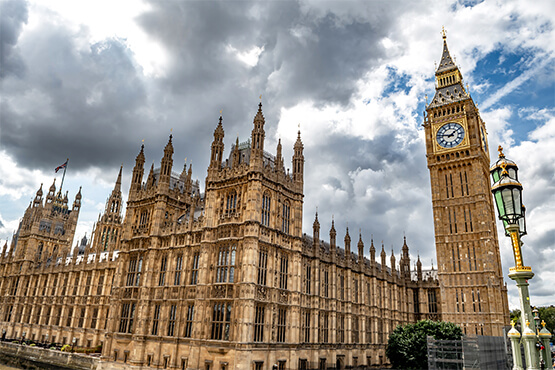Does judicial review strike the right balance between enabling citizens to challenge the lawfulness of government action and allowing public bodies to carry on the business of effective government?
A summary of the key points in our response to the Government’s Independent Review of Administrative Law and next steps.
This article is taken from November's public matters newsletter. Click here to view more articles from this issue.
Introduction
Our article in September’s edition of public matters explained the background to the Government’s Independent Review of Administrative Law (‘IRAL’) and provided context for the specific areas of inquiry that the IRAL Panel had been asked to consider.
We have drawn upon our broad experience advising central government departments, NDPBs & arms’ length bodies, local government, healthcare providers and regulators across the public and independent health and social care sector and schools, academies, further & higher education institutions to frame our response to the Panel’s call for evidence. We have also reflected on our experience defending (and occasionally bringing) judicial review proceedings on behalf of public bodies in subject matter areas as diverse as health and social care, education, governance and jurisdictional issues, housing, regulatory, planning and environmental law.
We are delighted to now be able to share our submission with you.
Summary of our response
Judicial review provides a powerful mechanism for ensuring that the rule of law is upheld. It allows individuals and organisations to challenge decisions taken by public bodies, ministers, officials and other bodies performing public functions, and acts as a means of ensuring that those decisions are taken in accordance with the law. In our experience, the prospect of having a decision scrutinised through the judicial review process encourages public bodies to ensure that the decisions they take are robust, well-reasoned and made with public law principles in mind. It also encourages public bodies to carefully consider the level of risk that they are willing to tolerate in any particular situation and to take an informed, risk-based approach to decision making.
Judicial review processes and procedures are sufficiently clear and suitably robust, and the grounds for bringing a judicial review claim strike an appropriate balance between enabling effective public governance while ensuring that citizens and non-governmental organisations are able to scrutinise and to challenge government actions. There is certainly scope for providing greater clarity on some aspects of the law, particularly for litigants in person and those without the benefit of legal representation, but we do not believe that substantive reform to the law on judicial review is necessary.
Key points:
- The processes and procedures for judicial review already have sufficient statutory footing, having been codified in the Civil Procedure Rules 1998 (‘CPR’).
- The ‘Administrative Court Judicial Review Guidance 2020’ expands upon and explains the rules and procedures relating to judicial review and provides invaluable guidance for those without the benefit of legal advice and representation.
- While we do not consider that substantive reform to the grounds for bringing a judicial review claim is necessary, there is merit in codifying the grounds for judicial review either through amendments to the CPR or in supplementary court guidance, to make it easier for claimants who are not legally represented to plead their claims effectively. Better pleaded claims would invariably make the procedure more streamlined and more cost-effective for all concerned.
- As the line between the ‘public’ and ‘private’ spheres becomes increasingly blurred and public bodies turn to outsourcing arrangements, mutuals, joint ventures and alternative structures and delivery models to deliver core public functions; there is room for greater clarity on the scope of the ‘public function’ test that is used to determine whether an organisation’s actions and decisions are susceptible to judicial review.
- The limitation periods for bringing judicial review proceedings should not be extended. The requirement for a challenge to be brought promptly is vital - the longer a decision remains open to challenge, the less certainty there can be that the decision is final. This increases the risk for public bodies seeking to implement projects and programs in the public interest and private entities seeking to exploit the opportunities that arise from those actions.
- Although the costs of bringing a judicial review claim are high, they are proportionate given that judicial review should be a remedy of last resort. We do not believe that costs restrict access to justice, but rather ensure that the most meritorious claims are the ones that proceed. However, costs recovery for public bodies is a significant concern and we therefore recommend a number of measures that could be implemented to improve successful defendants’ ability to recover a greater proportion of their costs.
- The remedies available in judicial review are both adequate and appropriate, but it may be beneficial to instigate a new process allowing for a remedy akin to a declaration to be obtained at an early stage in proceedings. This would have the dual benefit of reducing the burden on the court while also reducing the costs risk for all parties to the proceedings.
- The nature of judicial review, which invariably requires the court to decide a specific question of law, limits the value of alternative dispute resolution. Clear guidance regarding when it is, and when it is not, appropriate for complaints to be referred to an Ombudsman is appropriate, which recognises the fundamental difference in the role that the Ombudsmen and the courts play in supervising public bodies.
Next steps
The panel expects to review the evidence and to report to the Lord Chancellor on its findings before the end of the calendar year. The Government has committed to publishing a full response to the Panel’s report, before bringing forward specific proposals for reform. It seems unlikely that specific proposals will be announced before Spring 2021.
Contact

Victoria Searle
Principal Associate
victoria.searle@brownejacobson.com
+44 (0)330 045 2363








































